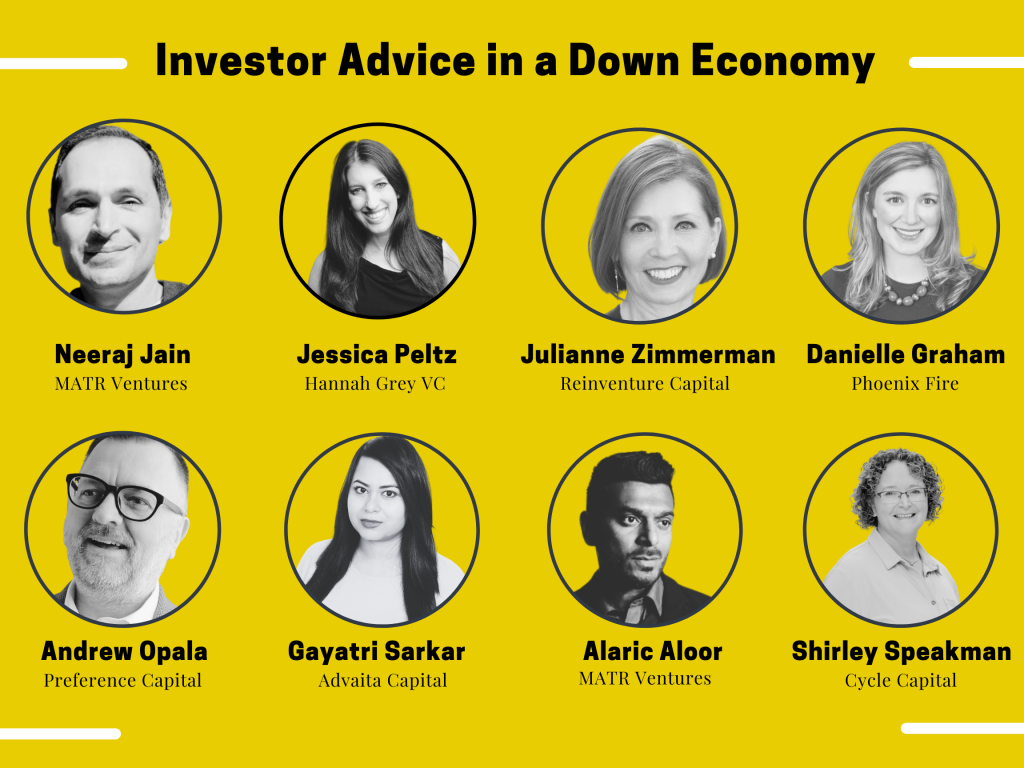Home » Moving Past Panic & Uncertainty: Investors Encourage Ways to Stand Out During a Down Economy
Moving Past Panic & Uncertainty: Investors Encourage Ways to Stand Out During a Down Economy

originally published: 2022-08-02 09:00:01
Female and racialized founders are met with a trickier situation compared to most during this economic slide. With an already limited access to funding, female and BIPoC founders are struggling to stand out and survive amongst the rest.
Aloor, of MATR Ventures, says picking your funders is critical to having a both a successful and enjoyable journey. Match yourself, your company, your product, your values, and your future with investors who will support and guide you will be a major factor in survival. Aloor advocates for female and racialized founders to focus on funds that primarily work with underrepresented groups:
“Know whom you are pitching, know from whom you are going to ask for money. Getting to the right person, the right group of people can make that journey as a start-up founder so much easier for you than if you went to the wrong group of people.”
Zimmerman of Reinventure Capital, a firm who invests exclusively in US-based companies led and controlled by BIPOC and/or female founders, explains why attention should be paid to female and racially diverse founders:
“During those two years and change of record-breaking amounts of capital flowing into the venture and private equity sectors, and record-breaking quantities of capital being invested by the venture and private equity sectors, the percentage of capital going to female founders and founders of colour did not appreciably improve. In fact, in some instances, it decreased.”
Zimmerman validates the importance of networking and connecting with partners and firms who are focused specifically on minority founders. Reaching out to a peer network gives an opportunity to gather invaluable candid, actionable insights, Zimmerman says.
“If you are a Founder CEO, for example, in the first year of operating your enterprise, reach out to a Founder CEO who’s 18 to 36 months ahead of you in a similar enterprise: someone who understands the sector you are in, someone who understands the path you are on. Ask their advice. What have they seen? Who has been helpful to them? What lenders have they spoken to, what investors have they spoken to? Who was helpful to them? What did that look like? What other resources have they turned to? How are they thinking about the experiences they had at your stage? And how are they thinking about what they are going through at their stage?”
Altitude Accelerator
https://altitudeaccelerator.ca/
Altitude Accelerator is a not-for-profit innovation hub and business incubator for Brampton, Mississauga, Caledon, and other communities in Southern Ontario. Altitude Accelerators’ focus is to be a dynamic catalyst for tech companies. We help our companies grow faster and stronger. Our strength is our proven ability to foster growth for companies in Advanced Manufacturing, Internet of Things, Hardware & Software, Cleantech and Life Sciences. Our team consists of more than 100 expert advisors, industry, academic, government partners. The team helps companies in Advanced Manufacturing, Internet of Things, Hardware & Software, Cleantech and Life Sciences to commercialize their products and get them to market faster.


